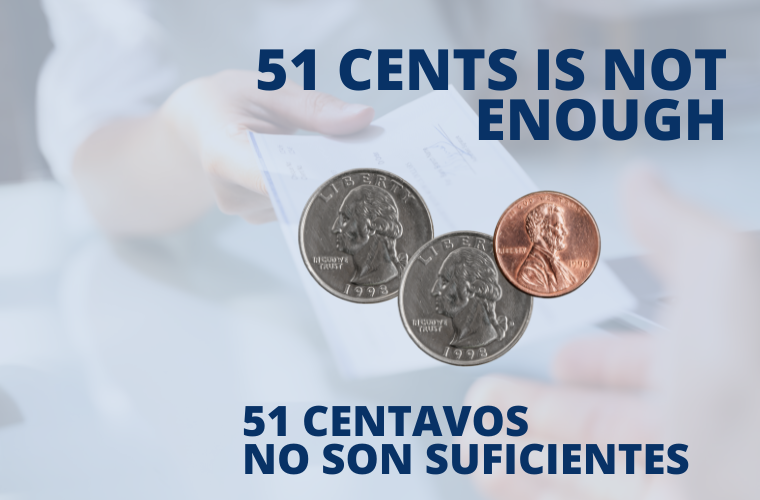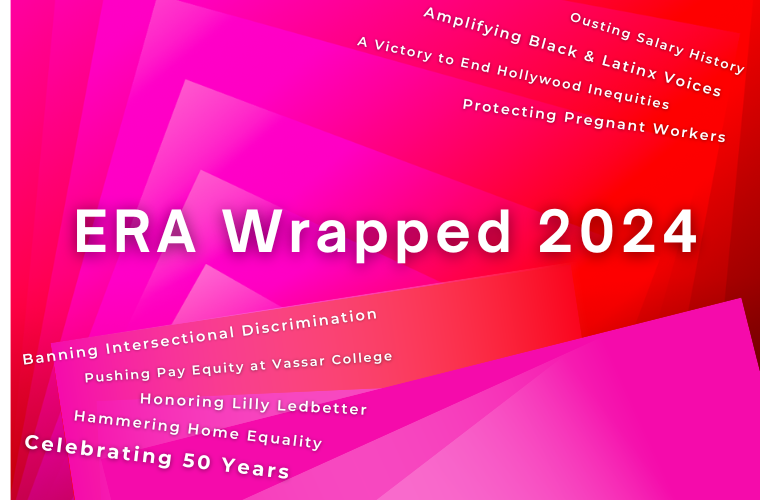
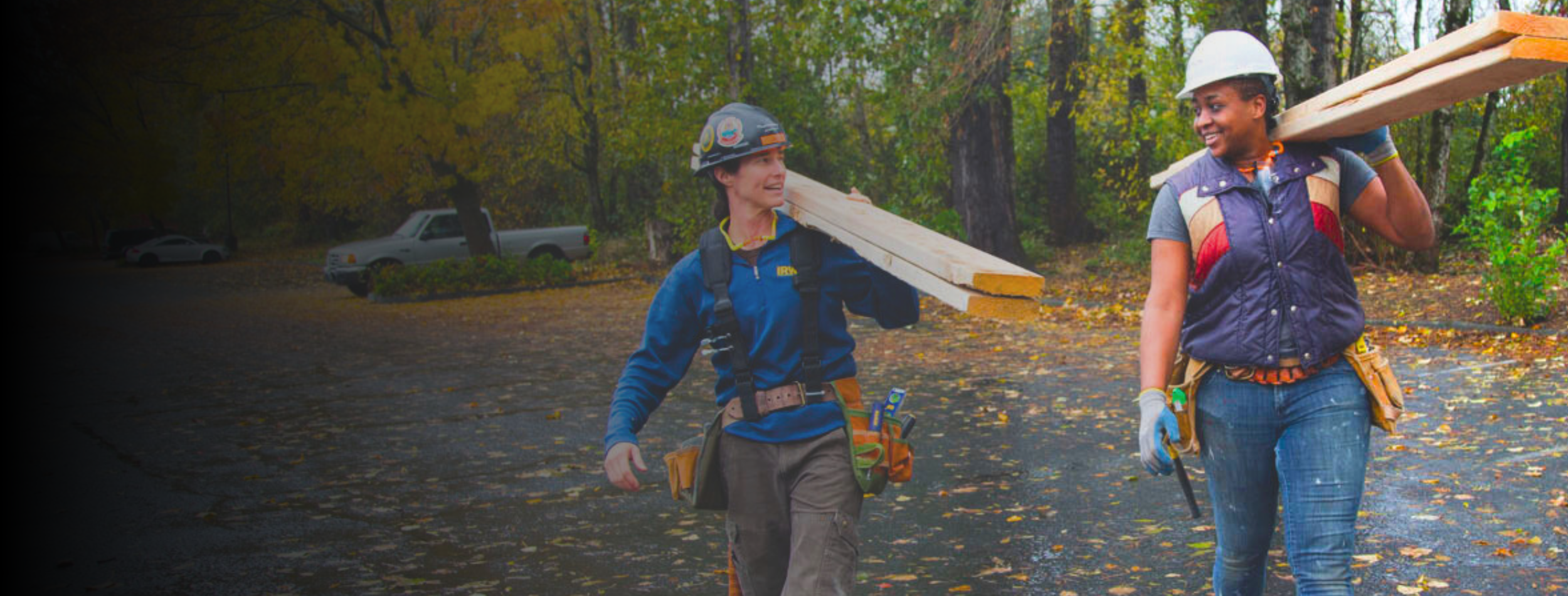
Women Rebuilding America
In 2024, the federal government started distributing an historic $4 trillion in infrastructure spending. ERA is working to ensure women receive their fair share of the millions of good jobs being created as a result. By giving women equal opportunities to high-paying, union-protected jobs in the construction trades, we can help families across the country escape poverty and achieve economic security.
Read on to see where we're working to ensure the equitable implementation of federal infrastructure funds.
Women in the Trades
Tradeswomen are a major force in our country. These essential women workers build our roads, bridges, and buildings; they are pipefitters, iron workers, electricians, painters, operating engineers, and much more. They are also labor leaders who are transforming their unions and the male-dominated industries in which they work. However, substantial barriers exist for women to gain entry into these jobs, and for those who do, they often face extreme discrimination and harassment at work.
Over the course of her lifetime, a woman working in the trades will make on average $1 million more than a woman working in a traditionally woman-dominated field, such as retail, childcare, and service industries. However, women represent just 4.2% of construction trades workers nationally. Women need equal access to high-paying jobs that are available to people who can’t afford college degrees, or don’t want to be saddled with a lifetime of student loan debt.
Women flourish in these careers when they have access to quality pre-apprenticeship and apprenticeship training programs and supportive services. But like careers in the trades, registered apprenticeships — paid on-the-job training programs that are the primary pathway into high-skilled trades jobs — are not serving women equally. Nationally, women represent only 4.3% of people in federally registered construction apprenticeship programs, which contributes directly to their severe underrepresentation in trades jobs.
Kalima’s Story
Tradeswomen across the U.S. have shared stories of how their careers in the trades have helped them escape abusive relationships, pay off crippling debt, and ensure their families’ health and other basic needs are covered.
Hear from Kalima Ramsey-Walker, National Taskforce on Tradeswomen’s Issues Communications Committee Co-Chair, SMART Local 100, & Co-Founder of DMV Tradeswomen about how a career in the trades changed her life:
Our Strategy
Starting in 2024, the federal government will disburse $4 trillion dollars to states and local governments across the country through passage of the most transformative federal economic legislation in a generation: The Inflation Reduction Act, the CHIPS and Science Act, and the Bipartisan Infrastructure Law. This will create millions of good jobs and have the potential to reshape the American workforce.
The best anti-poverty strategy in the world is a good job. Since 1974, ERA has been a leader in opening male-dominated fields to women, moving them into stable, high-paying careers, and increasing economic security for themselves and their families. It also is a significant way to combat gender and race wage gaps, and disrupt occupational segregation.
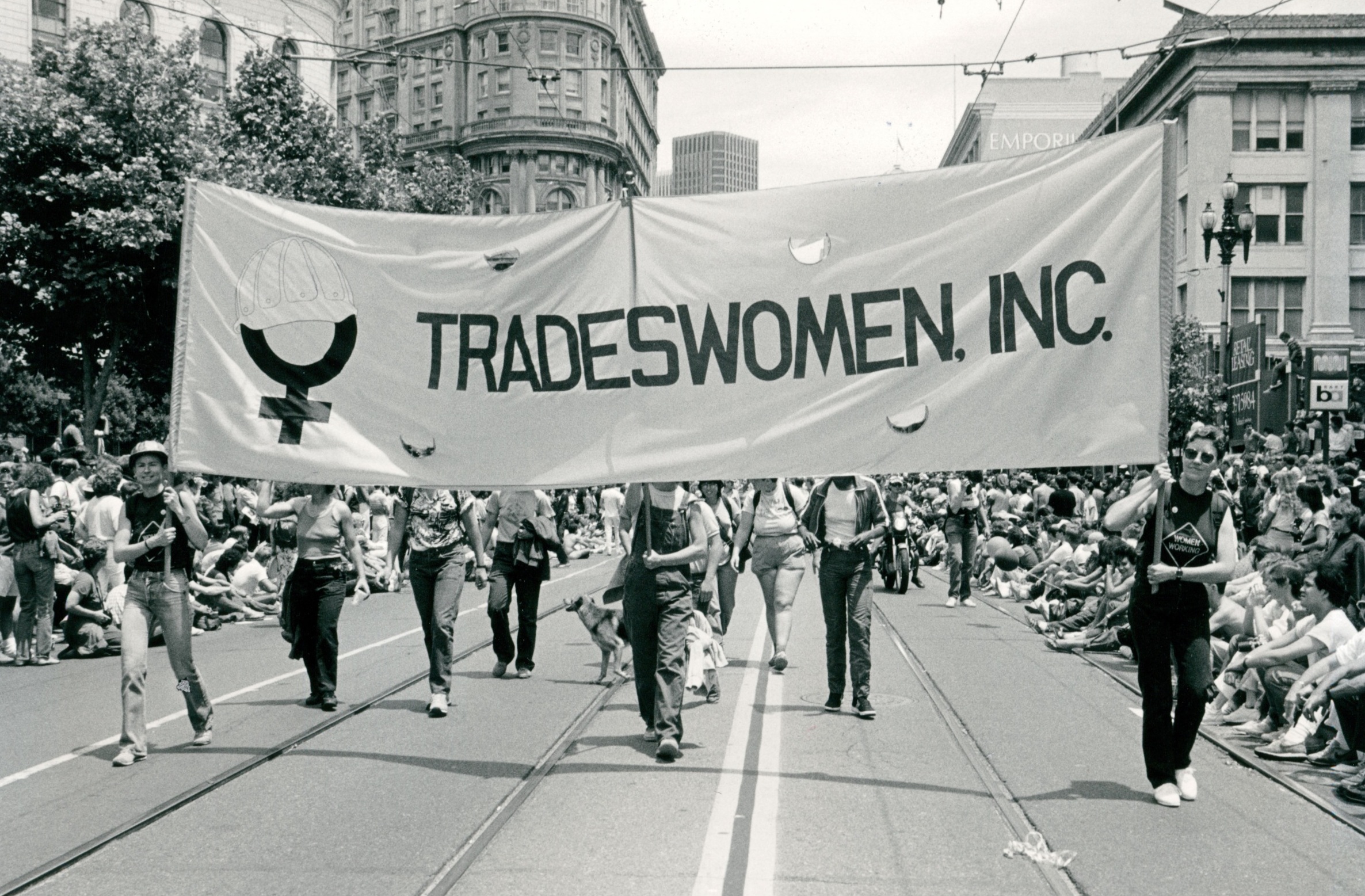
The largest, measurable contributor to wage injustice is occupational segregation, which accounts for 30 to 40% of the gender pay gap, particularly for women of color. Women—disproportionately women of color— are segregated into low-paying jobs such as retail sales, home health care, service industries, and child care. Currently, women make up two-thirds of the adult minimum wage workforce.
That is why ERA is on the front lines with tradeswomen, working to ensure equitable access to these new jobs, and continuing to advocate for laws and policies that guarantee fairness, promote respectful worksites, and advance access into skilled apprenticeship programs, a key pathway to jobs in the trades.
“We are on a mission to make the construction industry a diverse, safe, equitable, accessible, and inclusive place for today’s tradeswomen while preparing a better pathway for future generations of girls who are on their way…This is an advancement in our work to make the industry a place where tradeswomen want to work and where they can thrive.”
– Janelle DeJan, Co-Chair of the National Taskforce on Tradeswomen’s Issues, an IBEW Local 130 Electrician at New Orleans Aviation Board, and Partnerships Manager and Instructor at NOCC Building Trades Industry
The National Taskforce on Tradeswomen’s Issues
A project at Equal Rights Advocates, The National Taskforce on Tradeswomen’s Issues seeks to ensure access to apprenticeships, sustainable careers, and respectful job sites for tradeswomen. The Taskforce leads policy advocacy campaigns and provides educational and advocacy opportunities for more than 400 individual members from 24 states and Washington D.C., 25 tradeswomen-serving organizations, and 6 ally organizations.
“I’m thrilled that the National Taskforce on Tradeswomen’s Issues is taking this step, to be a formal partner with Equal Rights Advocates. ERA has been a champion of tradeswomen for decades, and this partnership will enable the Taskforce to gain needed resources to strengthen our ability to improve access and working conditions for tradeswomen.”
– Connie Ashbrook, Co-Chair of the National Taskforce on Tradeswomen’s Issues; retired Executive Director of Oregon Tradeswomen; and retired Elevator Constructor Local 23
After more than a decade of partnering with the Taskforce, and 50 years of advocating for women’s access to jobs in the trades, we proudly incorporated the National Taskforce on Tradeswomen’s Issues as an official Project at ERA in May, 2024.
The Taskforce advocates with member groups across the country:
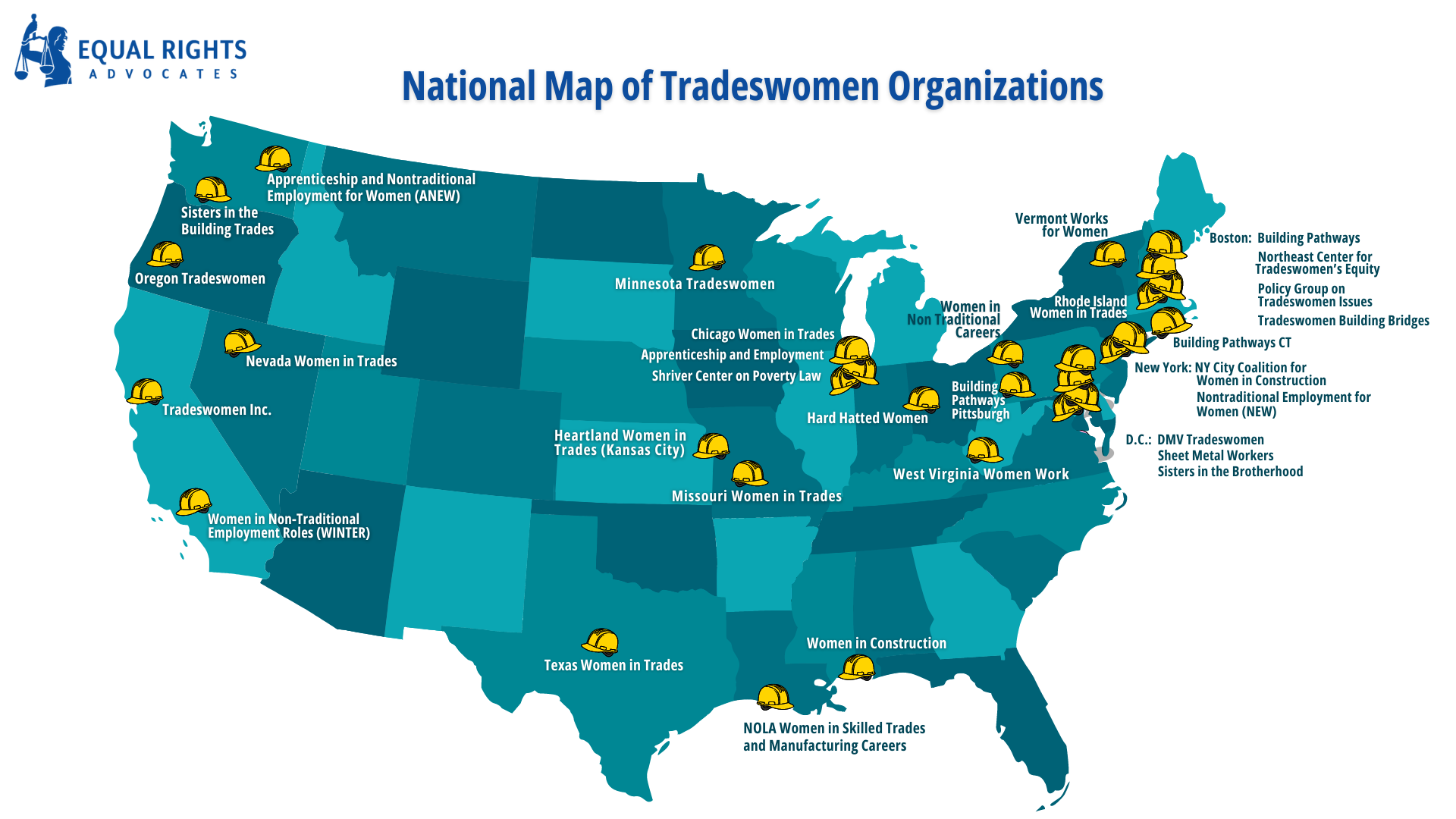
As a project at ERA, the National Taskforce on Tradeswomen’s Issues will continue the work of bringing tradeswomen across the U.S. together to discuss what they need, and how to organize and effect change within their unions and workplaces. At this pivotal moment for the tradeswomen movement, ERA and the Taskforce will continue empowering tradeswomen to fight for equal access to jobs, stronger workplace protections, and robust enforcement of laws to ensure equity.
Click here to learn more about The National Taskforce on Tradeswomen’s Issues and view a list of member groups.

Help us do more work like this
Support the movement for gender justice. Invest in our mission to end discrimination and sexual violence in our workplaces and schools with a gift to ERA.


